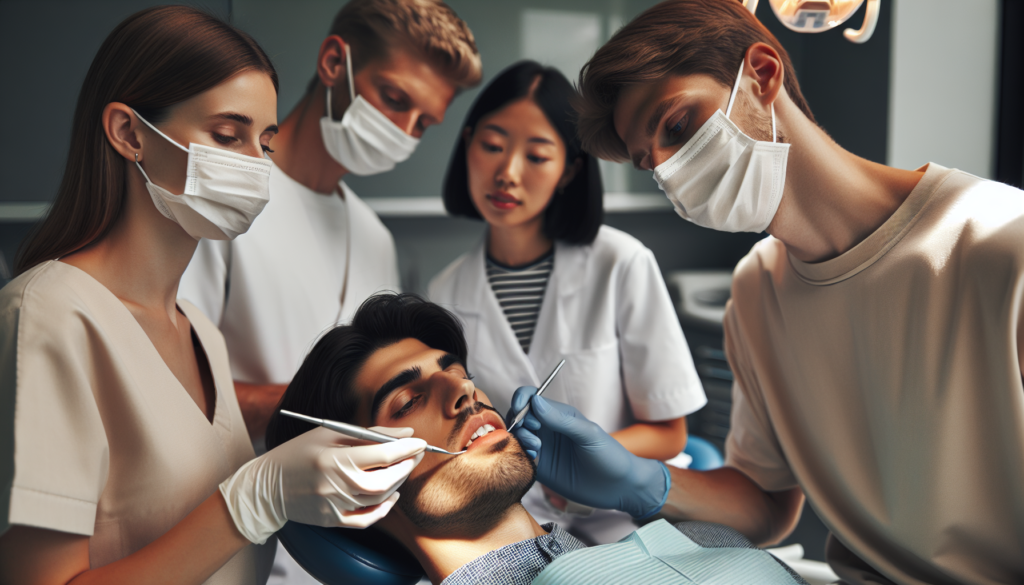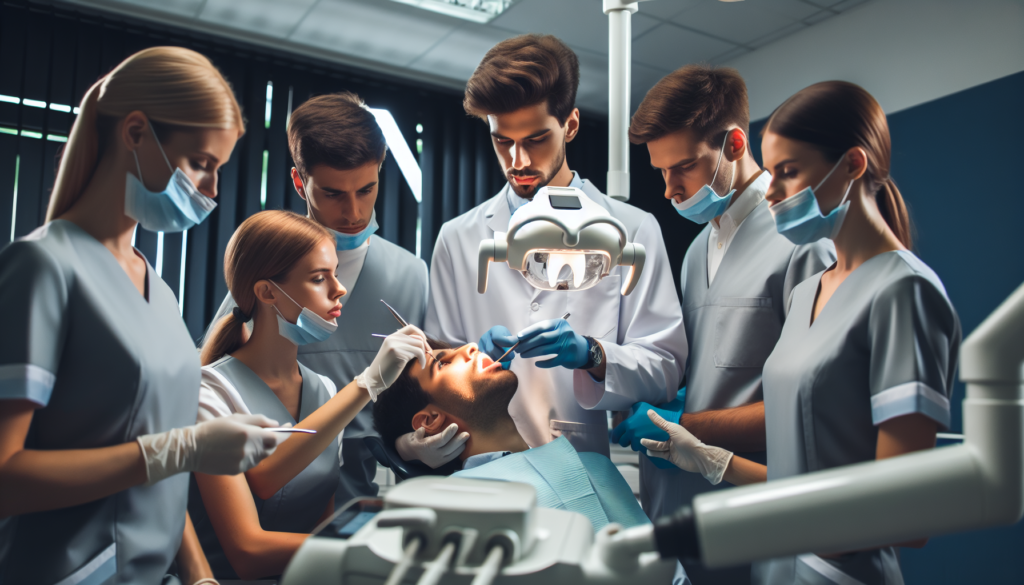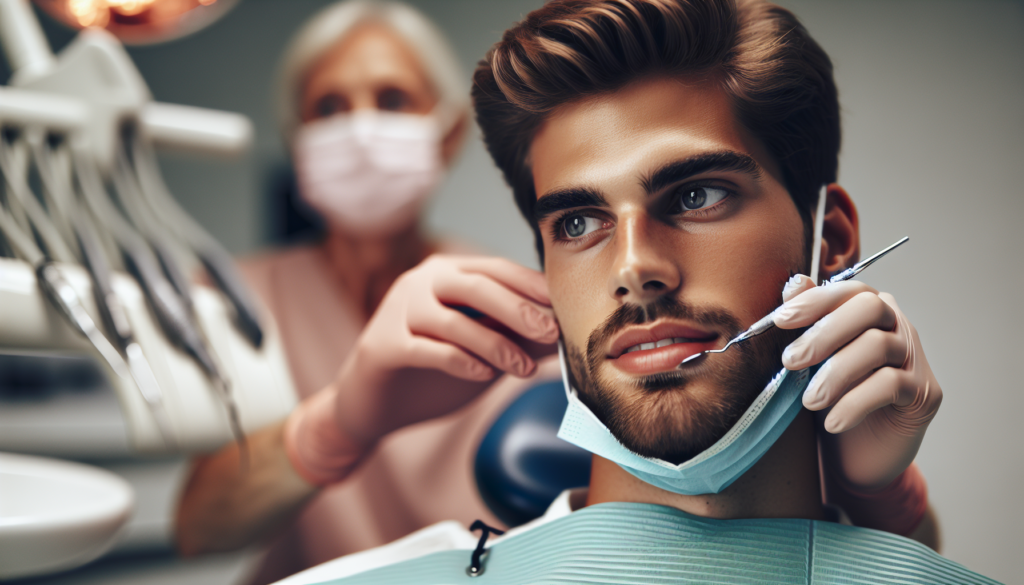Expert Tips for Better Oral Health from Dr. Kami Hoss
Why Oral Health Matters for Overall Wellness
Your mouth is more than just the beginning of your digestive system — it’s a mirror of your body’s overall health. Dr. Kami Hoss, a leading dental expert and author, emphasizes that a healthy mouth supports everything from immune function to cardiovascular health. When gums, teeth, and the oral microbiome are in balance, the rest of the body benefits too.
In this article, we share practical oral health tips inspired by Dr. Hoss’s evidence-based approach to modern dentistry, helping you strengthen both your smile and your overall well-being.
Understanding the Oral Microbiome: The Foundation of a Healthy Smile
The oral microbiome — the community of good and bad bacteria in your mouth — is a crucial factor in maintaining dental wellness. A balanced microbiome helps protect enamel, prevent gum disease, and even support digestive processes. However, modern life, with processed food and over-sanitizing habits, can easily disrupt this delicate ecosystem.
- Balance is key: Beneficial bacteria help neutralize acids and maintain a naturally healthy pH level in the mouth.
- Avoid overuse of antibacterial products: Excessive use of mouthwash or alcohol-based rinses can wipe out healthy flora.
- Consider probiotic dental products: New formulations containing probiotics may help restore a healthier bacterial balance.
Insights adapted from Dr. Kami Hoss’s commentary on the oral microbiome.
Daily Habits for Improved Oral Hygiene
The backbone of oral health is a strong daily routine. Technique, timing, and tool selection all matter as much as consistency. Dr. Hoss recommends combining mechanical cleaning with mindful practices.
- Brush twice daily for at least two minutes using gentle circular motions.
- Floss once a day to remove plaque and particles between teeth that brushing can’t reach.
- Clean your tongue to reduce odor-causing bacteria and encourage fresher breath.
- Replace toothbrushes every three months, or sooner if bristles show wear.
Maintaining this routine creates not only healthier teeth but also builds self-discipline similar to forming positive habits in other areas of life.
Choosing the Right Toothpaste and Mouthwash
Not all toothpastes and rinses are created equal. The right products protect enamel and nourish the oral microbiome instead of stripping it. When choosing your dental products, look beyond the brand promises and focus on ingredients.
- Fluoride or hydroxyapatite: Both help remineralize enamel and prevent cavities.
- Probiotics: Support healthy bacteria growth for long-term gum and tooth wellness.
- Avoid alcohol-based rinses: These dry out the mouth and can upset bacterial balance.
- Skip harsh whitening chemicals: Opt for natural brightening ingredients like baking soda or charcoal in moderation.
Your goal is to find products that strengthen and protect — not just clean — your teeth and gums.
The Role of Diet in Strong Teeth and Gums
Nutrition plays a critical role in oral and systemic health. A diet rich in vitamins, minerals, and natural whole foods can reinforce enamel strength and help maintain gum integrity.
- Eat calcium-rich foods such as yogurt, cheese, and leafy greens to support enamel structure.
- Load up on vitamin C to strengthen connective tissues and prevent gum inflammation.
- Limit sugary snacks and acidic drinks that erode enamel and disrupt the oral microbiome.
- Stay hydrated to stimulate saliva production, your mouth’s natural defense mechanism.
Think of every bite as either feeding health or decay — your smile is a reflection of the nutrients you consume daily.
Professional Dental Care: When to See Your Dentist
Even with perfect daily habits, professional dental care remains non-negotiable. Regular checkups are key to identifying issues before they escalate and to maintaining oral health through targeted cleanings and diagnostics.
- Schedule a dental visit every six months for routine cleaning and assessment.
- Ask about personalized care such as fluoride treatments or sealants if you’re cavity-prone.
- Discuss any symptoms — bleeding gums, sensitivity, or jaw discomfort — as soon as they appear.
Dr. Kami Hoss emphasizes that preventive dentistry saves both money and health in the long run, helping patients maintain their natural smiles for life.
Science-Backed Strategies for a Lifetime of Better Oral Health
Modern research continues to reshape how we approach oral care. From microbiome-friendly toothpaste innovations to digital diagnostics in dental clinics, science-backed strategies make prevention more effective than ever.
- Regular saliva testing: This emerging tool helps monitor pH balance and bacterial diversity.
- Smart toothbrush technology: Devices that track brushing pressure and duration can improve technique.
- Mind-body connection: Chronic stress can contribute to gum inflammation — relaxation and meditation support both oral and systemic health.
Evidence-based dentistry encourages us to see oral health as a reflection of total wellness — mental, physical, and emotional.
Build Lifelong Oral Wellness Through Smart Daily Choices
Healthy smiles don’t happen overnight — they’re built through consistent, mindful actions aligned with a wellness-focused lifestyle. As Dr. Kami Hoss highlights, oral health habits mirror broader personal habits: intentional, consistent, and guided by long-term vision.
When you make choices today that nurture your oral health, you reinforce positive changes throughout your entire body. Begin with small, sustainable efforts and commit to maintaining them daily.
Frequently Asked Questions
- 1. How often should I replace my toothbrush?
Every three months or sooner if the bristles appear frayed or worn. A fresh toothbrush ensures effective plaque removal. - 2. What causes gum bleeding during brushing?
Bleeding gums may signal plaque buildup or gingivitis. Consistent flossing and professional cleaning can help reduce it. - 3. Are electric toothbrushes better than manual ones?
Electric brushes can improve consistency and technique for many users, but manual brushing done properly works just as well. - 4. Is mouthwash necessary for good oral health?
Mouthwash isn’t mandatory but can enhance oral hygiene when chosen wisely — preferably alcohol-free and microbiome-friendly. - 5. How does diet impact oral health?
Foods high in sugar or acid weaken enamel, while nutrient-rich foods support stronger teeth and healthier gums. Balance is essential for long-term protection.
Want to take control of your habits beyond oral health? Discover how small, consistent actions can transform every corner of your life.
Post Disclaimer
DentalUp is for educational purposes only and cannot accept personal dental information such as x-rays, photos, or treatment details. See full disclaimer here.





